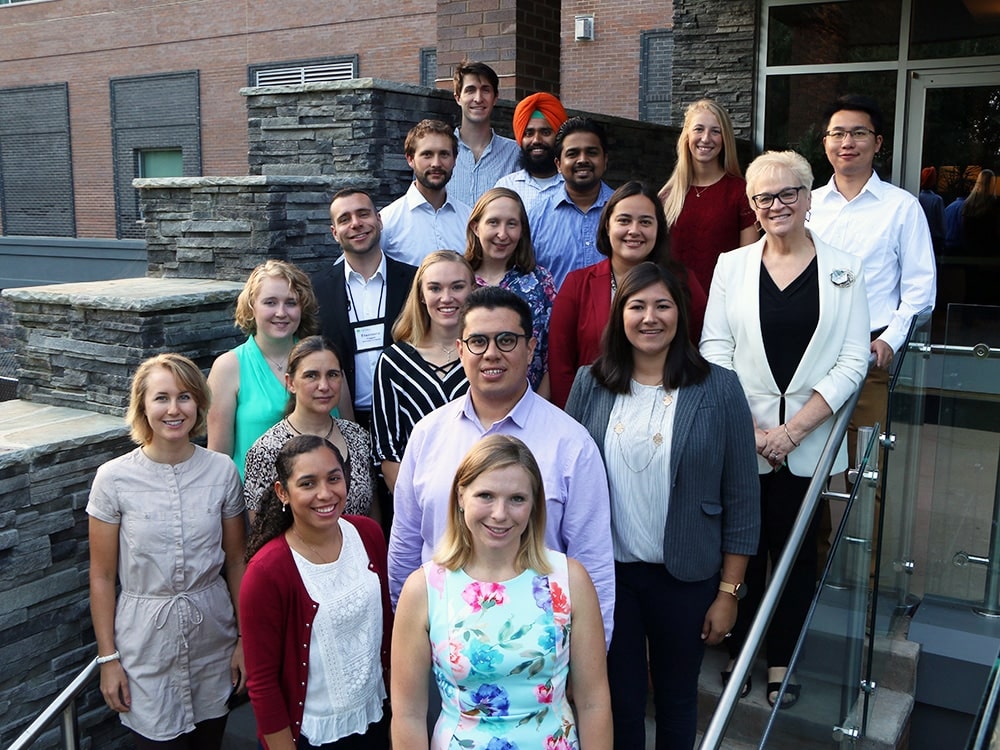Mentorships matter! Having had a long career in science, I can reflect fondly on those individuals who made a difference in my life and to whom I owe a great deal of my success. My first mentor was my high school biology teacher. He had an infectious love of biology, which he transferred to his students, was a fantastic teacher and an ambassador for science. He was young, just out a college and so inspiring that I headed off to the same college where he received his degree.
The other great mentor of my life was my Ohio State University graduate school advisor, Dave Denlinger; both an amazing mentor and an incredible National Academy scientist. He was an exceptionally thoughtful individual l who devoted much time to his grad students. He also taught me just how exciting the world of entomology could be. Dave offered respect, bolstered my career and pushed me to apply for scholarships and awards. Moreover, he encouraged me to get involved in activities outside of the lab, like forming a grad student organization, serving on committees and communicating with the public about science, just to name a few. Many of the skills I applied to my career in research administration came from these types of activities.
And mentorship goes both ways. I also have mentored many people in my life, particularly other women and I was always surprised how much I learned about myself and about how to be a better mentor during each of these opportunities.
The Foundation for Food & Agriculture Research (FFAR) was created, in part, to support the next generation of food and agriculture scientists. So with a deep understanding of how mentorship and developing a broad array of skills can benefit students during their research training, we developed the FFAR Fellows Program to provide current graduate students with expanded experiences that will best prepare them for the variety of career paths they may choose.
The FFAR Fellows program is designed to teach the soft skills students need to be persuasive scientists, encourages students to explore their entrepreneurial spirit and matches them with an industry internship and an industry mentor to gain a private sector perspective. The Fellow’s interdisciplinary approach to career readiness is rooted in mentorship and enables students to see science from different angles.
The caliber of the FFAR fellows has been outstanding which gives me great confidence for the future of agriculture and food sciences. I hope that, if you are a grad student interested in expanding your training experience, that you will consider applying for future FFAR Fellows programs.
In the meantime, FFAR’s blog will be featuring blog posts from some of our current FFAR Fellows, highlighting their experiences and groundbreaking research.

By Dr. Sally Rockey, FFAR Executive Director